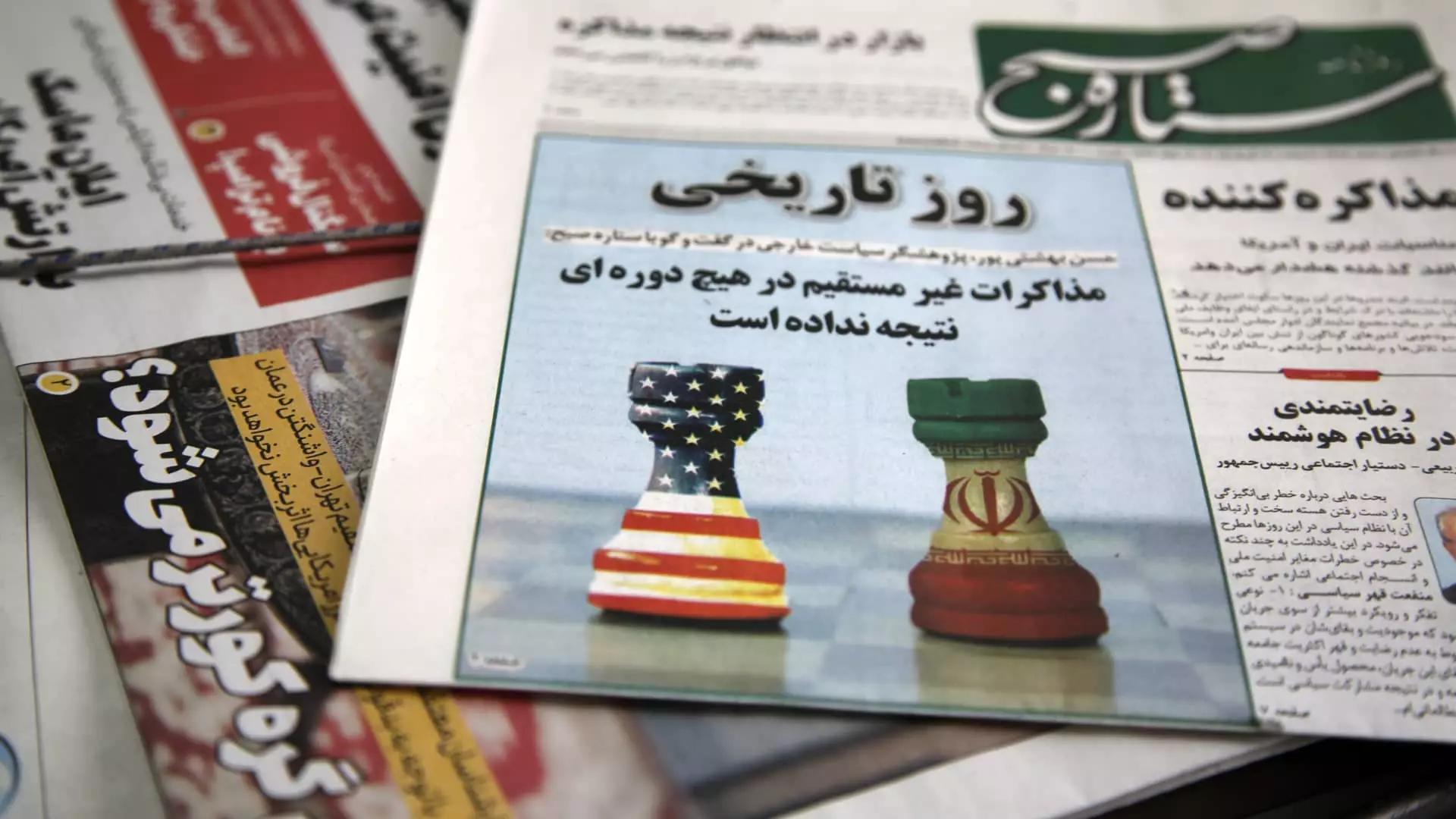As Iran and the United States prepare to step into yet another round of nuclear negotiations, the atmosphere is thick with tension and skepticism. Situated in Rome, these discussions are intended to resolve a decades-long standoff concerning Iran’s nuclear endeavors. Yet, as history has shown, the ultimate success of such diplomatic efforts remains precarious, particularly when one party feels cornered by the specter of military action. President Donald Trump’s threats to escalate tensions if diplomacy fails form a menacing backdrop to the talks, overshadowing any glimmer of constructive dialogue.
The upcoming negotiations are set between Iranian Foreign Minister Abbas Araqchi and Trump’s Middle East envoy, Steve Witkoff. The lack of direct communication between the two delegations since 2015 speaks volumes about the challenges they face. While both sides may officially tout a desire for peaceful negotiations, the subterranean currents of mistrust run deep and can derail even the most well-intentioned initiatives.
A Cautious Approach to Refining Trust
Iran’s recent statements highlight a cautious optimism that belies its underlying strategy. Supreme Leader Ayatollah Ali Khamenei’s remarks, neither overly optimistic nor pessimistic, suggest an attempt to manage expectations yet also indicate a nuanced defiance. Iran has been clear that any reductions in its nuclear capabilities hinge upon the lifting of sanctions — a stance that brings with it the expectations for watertight guarantees from Washington, a commodity that remains all too elusive for Tehran.
Trump’s previous abandonment of the 2015 nuclear deal has placed immense pressure on the current negotiations. His “maximum pressure” approach, implemented since his return to office, carries an implicit threat that hangs over the talks like a sword of Damocles. The stakes are high: for Iran, a continued path towards nuclearization may serve as leverage; for the United States, ensuring Iran’s nuclear capabilities remain restrained is paramount. With each side eyeing the other warily, what emerges is a diplomatic dance characterized by missteps and potential miscommunication.
Uranium Enrichment: The Heart of the Matter
A crucial point of contention in these discussions is the enrichment of uranium. Tehran has consistently maintained that its nuclear program is aimed at peaceful purposes. However, the breach of the 2015 deal’s restrictions since 2019 adds a layer of complexity that is hard to ignore. The quantities of enriched uranium that Iran has produced far exceed what is necessary for civilian use, further complicating its position on the global stage.
Moreover, Iran’s firm stance — refusing to dismantle its enrichment centrifuges or to negotiate its missile capabilities — highlights a commitment to retaining a semblance of deterrence, should talks falter. This determination not only serves Iran’s strategic interests but also signals the deeply entrenched barriers that diplomacy must navigate.
The Role of Mediators and International Dynamics
The involvement of mediators, particularly from Oman, is a testament to the delicate nature of these talks. While Oman has historically played a constructive role in facilitating dialogue, the effectiveness of such mediation is inherently limited when the key players remain at a stalemate. Additionally, Russia’s offer to mediate, although well-intentioned, casts a shadow of complexity over the negotiation. With its own set of interests in the region and as a participant in the 2015 agreement, Russia’s alignment with either party could shift the balance in unpredictable ways.
In this intricate web of negotiations, the inherent distrust between Iran and the U.S. threatens to undermine even the most carefully laid plans. If diplomacy is to succeed, both parties must transcend their entrenched positions and develop a mutual understanding – an endeavor that is currently fraught with hesitation and entangled in the legacy of past failures.
As the Rome negotiations loom ahead, it becomes abundantly clear that the path to peace is riddled with complexity. Each party, laden with their own historical grievances and strategic imperatives, must be prepared to confront not only their adversary but also the very fears that have long defined their relationship. In the interplay of diplomacy and power, only time will reveal whether this latest chapter will lead to reconciliation or further divide the two nations beset by a complex legacy of mistrust.


Leave a Reply